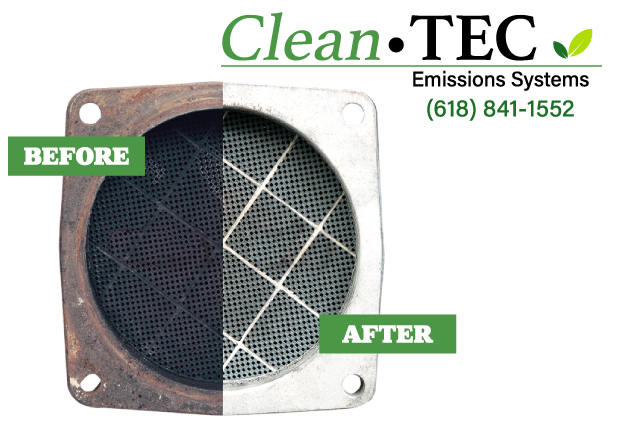Owning an RV with a diesel engine offers numerous advantages, such as improved fuel efficiency and greater torque for hauling heavy loads. However, maintaining the engine’s health is crucial for ensuring these benefits.
One critical component requiring regular attention is the Diesel Particulate Filter (DPF). In this article, we will delve into why and how often you should clean your DPF filter, as well as the benefits of regular cleaning for any diesel engine.
Understanding the DPF Filter
The DPF filter is designed to capture and store exhaust soot to reduce emissions from diesel engines. This component is essential for meeting environmental regulations and ensuring that your RV operates efficiently. Over time, the DPF filter becomes clogged with soot and ash, necessitating regular cleaning to maintain its effectiveness.

Why You Must Clean Your DPF Filter
- Prevent Engine Damage
- A clogged DPF filter can lead to increased backpressure in the exhaust system, which can cause severe damage to the engine. Regular cleaning prevents this buildup, protecting your engine from unnecessary wear and tear.
- Maintain Fuel Efficiency
- Diesel engines are known for their fuel efficiency, but a dirty DPF filter can significantly reduce this advantage. When the filter is clogged, the engine has to work harder, consuming more fuel. Regular cleaning helps maintain optimal fuel efficiency.
- Comply with Emission Standards
- Environmental regulations require diesel engines to emit minimal pollutants. A clean DPF filter ensures your RV meets these standards, avoiding potential fines and contributing to a cleaner environment.
- Avoid Costly Repairs
- Neglecting your DPF filter can result in expensive repairs or even the need for a complete replacement. Regular cleaning is a cost-effective way to avoid these issues and extend the life of your filter and engine.
- Ensure Optimal Performance
- A clean DPF filter allows your diesel engine to perform at its best, providing the power and reliability you expect from your RV. This is especially important for long trips where consistent performance is crucial.
How Often Should You Clean Your DPF Filter?
The frequency of DPF cleaning depends on several factors, including the type of driving you do, the age of your RV, and manufacturer recommendations. However, there are some general guidelines you can follow:
- Manufacturer Recommendations
- Always refer to your RV’s owner manual for specific guidelines on DPF maintenance. Manufacturers typically recommend cleaning intervals based on mileage or engine hours.
- Type of Driving
- If you frequently drive in stop-and-go traffic or take short trips, your DPF filter may clog more quickly compared to long highway drives. City driving results in more frequent regenerations, a process where the filter burns off soot, but short trips might not allow sufficient time for complete regeneration, leading to more frequent cleanings.
- Monitoring System Alerts
- Modern RVs are equipped with monitoring systems that alert you when the DPF filter requires attention. Pay close attention to these alerts and take action promptly.
- Visual and Performance Checks
- Regularly inspect your DPF filter and watch for signs of clogging, such as reduced engine performance, increased fuel consumption, or warning lights on the dashboard.
Benefits of Regular DPF Cleaning for Any Diesel Engine
- Extended Engine Life
- Regular DPF cleaning reduces the strain on your engine, helping it last longer and operate more efficiently. This can result in significant cost savings over the lifespan of your RV.
- Improved Fuel Economy
- A clean DPF filter allows your engine to breathe easier, improving fuel economy and reducing the frequency of refueling stops during your trips.
- Enhanced Engine Performance
- Maintaining a clean DPF filter ensures that your diesel engine performs at its peak, delivering the power and reliability needed for towing, climbing steep grades, and navigating rough terrain.
- Lower Emissions
- Regular cleaning helps keep your DPF filter effective at trapping harmful pollutants, reducing your environmental impact and ensuring compliance with emission regulations.
- Cost Savings
- By avoiding expensive repairs and extending the life of your DPF filter, regular cleaning can save you a significant amount of money in the long run.
How to Clean Your DPF Filter
There are a few methods for cleaning a DPF filter, each with its own advantages:
- Passive Regeneration
- This occurs automatically when the exhaust temperature is high enough to burn off the accumulated soot. Long highway drives are ideal for passive regeneration.
- Active Regeneration
- The engine management system injects extra fuel to raise the exhaust temperature and burn off soot. This process is triggered when the filter reaches a certain level of soot accumulation.
- Forced Regeneration
- A service technician uses specialized equipment to manually initiate the regeneration process. This is often necessary when the filter is severely clogged and cannot regenerate passively or actively.
- Off-Vehicle Cleaning
- In some cases, the DPF filter may need to be removed and cleaned using professional equipment. This method is thorough and ensures that the filter is completely free of soot and ash.
Regular cleaning of your DPF filter is essential for maintaining the health and performance of your RV’s diesel engine. By understanding the importance of DPF maintenance, following manufacturer recommendations, and paying attention to driving conditions and system alerts, you can ensure that your engine remains efficient, powerful, and environmentally friendly.
The benefits of regular DPF cleaning extend beyond your RV to any diesel engine, making it a vital aspect of vehicle maintenance. Prioritizing DPF cleaning not only protects your investment but also contributes to a more sustainable and enjoyable driving experience.
